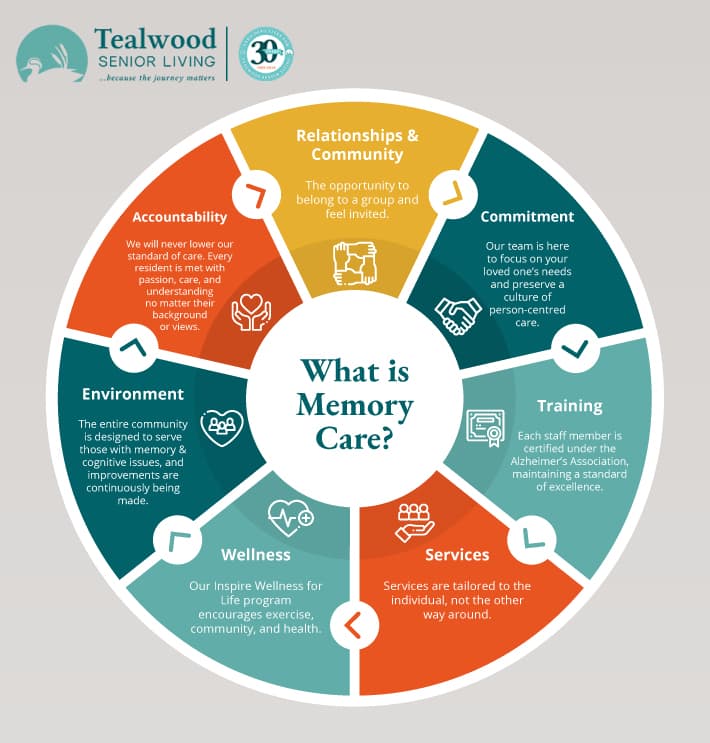Comprehensive Family Members Aid Available with Alzheimers Care Charlotte
Comprehensive Family Members Aid Available with Alzheimers Care Charlotte
Blog Article
Compassionate Alzheimer's Care for Your Liked Ones
Identifying the psychological and mental requirements of individuals influenced by this condition is critical in enhancing their quality of life. As we discover the various approaches and methods that can transform caregiving right into a more thoughtful experience, it becomes clear that the journey is as much concerning the caregiver as it is concerning the private with Alzheimer's.
Understanding Alzheimer's Condition
Alzheimer's disease is a dynamic neurodegenerative disorder that largely impacts cognitive function, bring about memory loss, damaged reasoning, and modifications in actions. It is the most usual form of mental deterioration, making up 60-80% of all cases. The condition typically shows up in individuals matured 65 and older, although early-onset Alzheimer's can take place in younger people.
The pathophysiology of Alzheimer's involves the accumulation of amyloid plaques and neurofibrillary tangles in the mind, causing neuronal deterioration and synaptic loss. These changes interrupt interaction in between brain cells, gradually harming cognitive capacities and daily functioning. Early signs may consist of problem bearing in mind current occasions and obstacles in analytic, which can intensify to disorientation and problem with language.
As the disease advancements, individuals may display extensive memory shortages, confusion regarding time and location, and problem acknowledging liked ones. Behavior modifications, consisting of withdrawal, stress and anxiety, and anxiety, may also occur. Recognizing the scientific development of Alzheimer's is crucial for caregivers and healthcare companies, as it notifies efficient management strategies and interventions tailored to the needs of people impacted by this incapacitating condition.
The Importance of Compassionate Treatment
Caring care is essential in sustaining people with Alzheimer's condition, as it substantially improves their lifestyle. This strategy focuses on the mental and emotional health of patients, fostering a setting that advertises understanding, respect, and self-respect. Individuals with Alzheimer's often experience stress, anxiety, and complication, which can be reduced via compassionate communications.
Compassion in caregiving not only assists in identifying the distinct demands of each person yet also reinforces the caregiver-patient relationship. When caregivers approach their duties with concern, they create a risk-free room where patients feel valued and recognized, which can decrease behavioral obstacles linked with the disease. This helpful atmosphere urges far better communication and engagement, assisting in a more efficient action to the treatment given.
Moreover, compassionate care extends beyond the individual; it likewise incorporates assistance for families. Caregivers who practice empathy are much more geared up to attend to the psychological problem dealt with by liked ones, offering reassurance and guidance via a challenging trip. Ultimately, the importance of compassionate treatment depends on its capacity to change the caregiving experience, bring about improved results for both individuals with Alzheimer's and their families.
Practical Caregiving Strategies
Effective caregiving for people with Alzheimer's condition needs practical strategies that address the unique obstacles presented by the condition. One of the foremost approaches is developing a constant daily regimen, which can supply structure and familiarity, lowering anxiousness for both the person and the caregiver. Caregivers need to likewise streamline tasks by damaging them down into smaller, convenient steps, thereby boosting the individual's feeling of achievement and reducing aggravation.
Communication is one more crucial facet; caregivers should utilize clear, simple language and preserve eye get in touch with to foster understanding. Making use of aesthetic cues, such as images or labels, can better help understanding and navigation in the setting.
Security is extremely important. Adapting the space to get rid of threats-- such as protecting carpets or installing grab bars-- can assist prevent mishaps. In addition, caregivers need to encourage self-reliance by permitting individuals to engage in acquainted activities, which can boost self-esteem and promote wellness.
Psychological Support Methods
Emotional well-being is a critical component of treatment for individuals with Alzheimer's illness, as it straight impacts their high quality of life. Alzheimers Care Charlotte. Giving emotional assistance techniques can substantially boost their daily experiences and additional hints promote a complacency and belonging
One reliable approach is active listening, which includes providing complete focus to the person, recognizing their sensations, and responding with empathy. This method assists the individual really feel valued and recognized, reducing feelings of seclusion or aggravation. Additionally, using validation therapy can be useful; as opposed to remedying misconceptions, caregivers can attest the individual's experiences and feelings, advertising a soothing atmosphere.
Taking part in reminiscence therapy is another effective approach, permitting people to share stories, feelings, and memories connected with their past. This not just boosts cognitive function however also reinforces psychological connections. Integrating familiar music or art can additionally stimulate positive emotions and trigger happy interactions.
Furthermore, guaranteeing regular physical touch, such as holding hands or mild hugs, can give comfort and reassurance, enhancing psychological bonds. These methods, when consistently used, can produce a nurturing atmosphere that sustains the emotional health and wellness of individuals with Alzheimer's, boosting their general well-being.
Developing a Helpful Environment

First of all, take into consideration the physical format of the living room. Clutter-free locations, familiar furniture arrangements, and well-defined paths can lower confusion and promote flexibility. Utilizing calming shades and sufficient illumination can better enhance the environment, making it a lot more welcoming and much less intimidating.
Secondly, uniformity is critical. Maintaining a predictable everyday regimen aids people with Alzheimer's feel much more Look At This safe. Acquainted tasks, normal dish times, and scheduled social interactions can considerably minimize anxiousness and disorientation.
In addition, sensory components play an important role. Incorporating familiar scents, music, and tactile objects can stimulate favorable memories and stimulate engagement. Customizing the space with valued photographs and meaningful items can likewise promote a sense of identity.
Final Thought
Caring Alzheimer's care significantly improves the top quality of life for people affected by this progressive condition. By prioritizing emotional health and implementing effective caregiving techniques, caregivers can foster an environment that promotes self-respect and belonging. Methods such as active listening and developing regular regimens serve to minimize anxiety while strengthening the caregiver-patient partnership. Eventually, this method not only gives crucial convenience and support but also empowers people to navigate the complexities of Alzheimer's with self-respect and grace.
As we explore the different strategies and strategies that can transform caregiving right into an extra caring experience, it comes to be clear that the journey is as much concerning the caregiver as it is concerning the individual with Alzheimer's.

Compassionate treatment is crucial in supporting individuals with Alzheimer's illness, as it significantly enhances their high Visit Your URL quality of life - Alzheimers Care Charlotte. Inevitably, the importance of compassionate care lies in its capacity to transform the caregiving experience, leading to enhanced results for both people with Alzheimer's and their family members
Compassionate Alzheimer's care considerably improves the high quality of life for people influenced by this dynamic condition.
Report this page